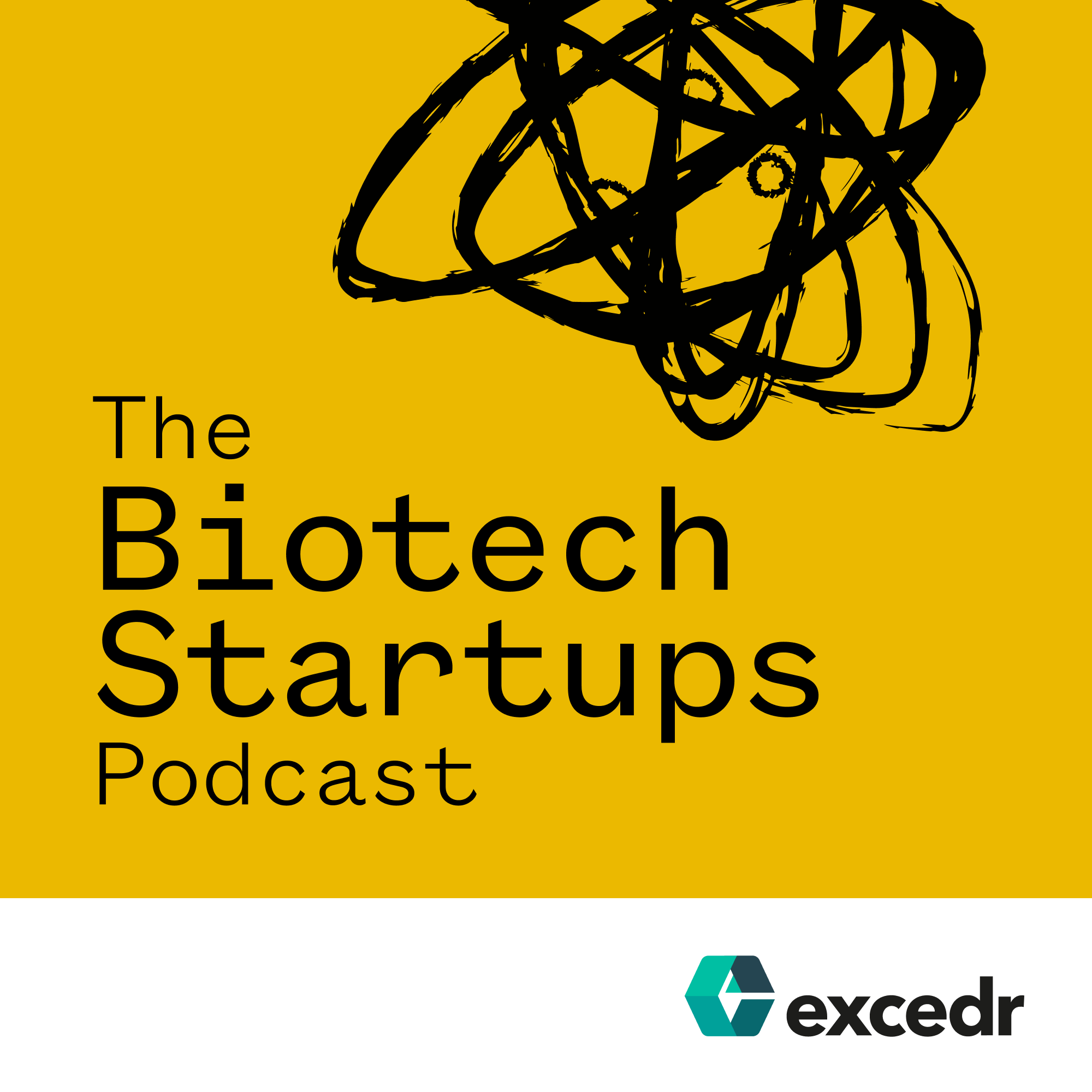🧬 Mark Kotter - bit.bio - Part 1 | Childhood Experiences in Different Countries | Overcoming Dyslexia & Developing Math Skills | Pivoting His Career to Science and Medicine | Facilitating Curiosity Via Research & Lab Experiences
June 17, 2024

Part 1 of 4.
My guest for this week’s episode is Mark Kotter, neurosurgeon, stem cell biologist, and CEO and founder of bit.bio. Bit.bio is an award-winning human synthetic biology company providing human cells for research, drug discovery, and cell therapy. Bit.bio applies a patented safe harbor gene targeting approach to inducibly express transcription factor combinations that reprogram human-induced pluripotent stem cells into highly defined and mature human cell types. Bit.bio spun out of the University of Cambridge in 2016 and has since raised approximately $200 million from Arch Ventures, Foresight Capital, Milky Way, Charles River Laboratories, National Resilience, Tencent, and Pulau Capital, among others.
As a podcast listener, you can redeem exclusive discounts with a growing list of biotech vendors and get $500 off your first equipment lease by using promo code “TBSP” on https://www.excedr.com/rewards.
My guest for this week’s episode is Mark Kotter, neurosurgeon, stem cell biologist, and CEO and founder of bit.bio. Bit.bio is an award-winning human synthetic biology company providing human cells for research, drug discovery, and cell therapy. Bit.bio applies a patented safe harbor gene targeting approach to inducibly express transcription factor combinations that reprogram human-induced pluripotent stem cells into highly defined and mature human cell types. Bit.bio spun out of the University of Cambridge in 2016 and has since raised approximately $200 million from Arch Ventures, Foresight Capital, Milky Way, Charles River Laboratories, National Resilience, Tencent, and Pulau Capital, among others.
In addition to bit.bio, Mark is also the co-founder of Meatable, scientific founder and chairman of rejuvenation startup clock.bio, and co-founder and trustee of Myelopathy.org, the first charity dedicated to a common yet often overseen condition causing a slow-motion spinal cord injury. Mark has also been a professor and researcher at Cambridge for more than 15 years. His diverse experience as an academic and serial entrepreneur offers a wealth of insights aspiring scientist founders can draw from.
Join us this week and hear about:
- Mark's upbringing as a curious child in Canada and his exposure to a broad range of cultures and perspectives
- His experiences growing up with dyslexia and how it led him to focus on science and mathematics at an early age
- His experience as a researcher and PhD student at Cambridge, where he transitioned from medicine to synthetic biology and stem cell research
- And much more!
Please enjoy my conversation with Mark Kotter.
Find Our Guest, Mark Kotter, at these links:
Find Our Host, Jon Chee, at these links:
Timestamps:
00:28 Intro
2:42 Episode starts, early days experiencing different countries and cultures, family influence as entrepreneurs, growing up with dyslexia
7:14 Despite strong mathematical skills, Mark’s desire to make an impact leads to a pivot to medicine
10:38 The impact of experiences in other countries while overcoming the struggles of dyslexia
12:29 Developing a passion for science and medicine, Mark’s exposure to spinal cord injuries as a nursing assistant
14:39 Changes in academic career at the University of Graz in Austria to pursue medicine
18:26 Experience at the University of Cambridge as a researcher
23:21 The culture at Cambridge supporting a sense of curiosity, lab experience as a PhD student
28:45 Understanding your purpose while navigating unique opportunities
30:52 Outro
Social & Website
LinkedIn: https://www.linkedin.com/company/excedr/
Youtube: https://www.youtube.com/@excedr
Instagram: https://www.instagram.com/excedr_inc
Twitter: https://twitter.com/ExcedrInc
Facebook: https://www.facebook.com/excedr
TikTok: https://www.tiktok.com/@excedr
Podcast Website: https://www.thebiotechstartupspodcast.com/
Enriched Notes:
Topics Mentioned:
What is Dyslexia?
Spinal Cord Injuries
University of Graz
University of Cambridge
Single Cell Analysis: Considerations & Applications
Lab Equipment for Genetic Engineering Research
What is Live-Cell Imaging & How Does It Work?
Common Lab Equipment for Life Sciences Research in 2024 https://www.excedr.com/blog/common-lab-equipment
The Biotech Startups Podcast gives you a front-row seat to the business and science of building a biotech. Hosted by Jon Chee, CEO of Excedr, the show features honest conversations with founders, execs, and investors about their work, their companies, and how they got there. From scientific breakthroughs to startup lessons, each episode explores what it really takes to grow a life science company—from pre-seed to IPO.